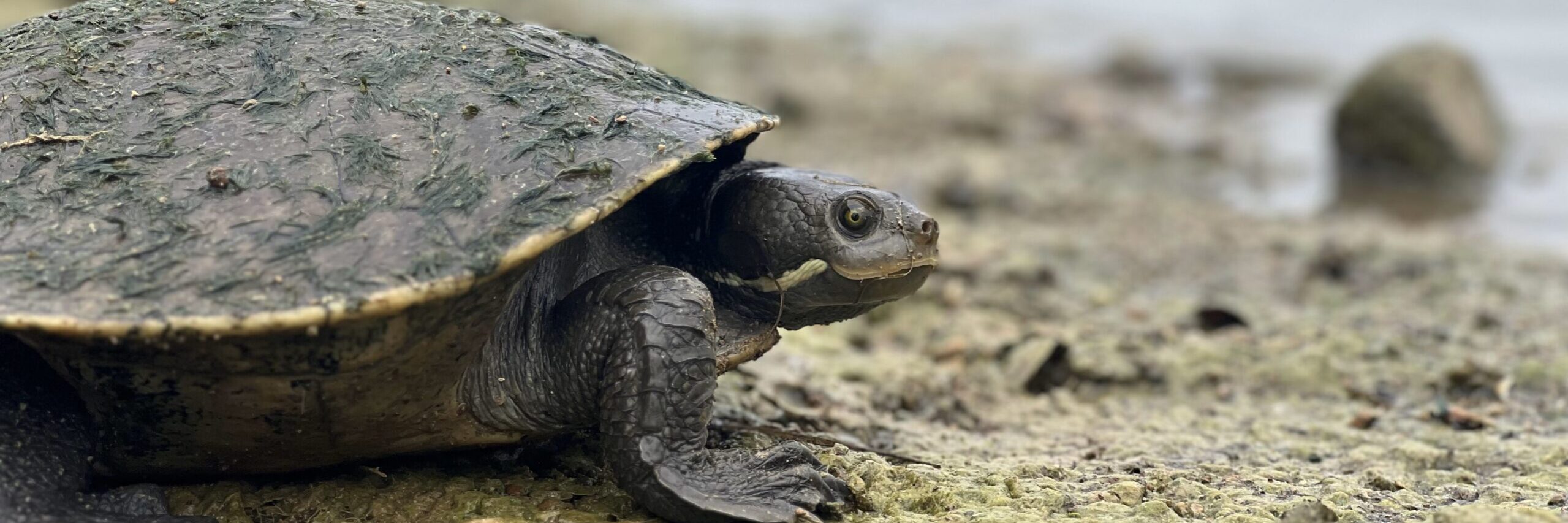Population declines was also observed in the freshwater turtle populations. Picture: CSIRO
HIGH levels of PFAS (‘forever chemicals’) contamination is killing off freshwater turtles, a new CSIRO-Qld study reveals.
The three-year study found biochemical changes in adult turtles and hatchlings, and noticed a drop in population of contaminated animals.
Dr David Beale, Senior Research Scientist at CSIRO, said major health impacts were observed in wildlife at sites exposed to high concentrations of PFAS.
“… in the turtles sampled, adults had a high potential of forming gout, which is deadly in reptiles,” Dr Beale says.
“We found that eggs had altered ratios of essential minerals, and hatchlings had a high rate of defects in their shells.”
Dr Suzanne Vardy, principal scientist at the Department of Environment, says researchers captured, measured, tagged, and released around 350 freshwater turtles.
“PFAS concentrations were detected up to 30 times higher in the blood and organs of turtles from the highly contaminated area, compared to control sites where there were low levels of PFAS in the water,” Dr Vardy says.
“When we looked at the population, we found that there was a lack of juveniles at the more contaminated site.
“Our models predicted that over time, these impacts could result in a population collapse.”
The research used advanced techniques to assess thousands of molecules within an organism to find out how it has responded to a contaminant or disease. These tools offer a holistic insight into animal metabolism, the life-sustaining chemical reactions which turn food into energy.
Dr Beale explains that a blood test for humans yields around 30 biochemical markers which indicates current health and future prospects.
“We’re applying the same approach to wildlife, doing a deep analysis … to understand the trajectory of their health in these contaminated environments,” he says.
“This revolutionary approach allowed researchers to link (the) levels of PFAS contamination and impact on animal health.
“We set out to better understand the impacts on our wildlife, where PFAS are accumulating in the environment,” Dr Beale says.
With peer-reviewed animal ethics approval, a small number of turtles were euthanised for the study, the CSIRO says.
Researchers ensured the other turtles were released back into their habitat as safely and quickly as possible.
ABOUT PFAS
The CSIRO and department say PFAS are a class of synthetic chemicals that are present in consumer, industrial, and commercial products, such as non-stick food packaging and cookware, and legacy firefighting foams.
The Qld Government began phasing them out in 2016.
The chemicals can leach into soils and groundwater, travel long distances, and do not fully break down naturally, giving them their nickname of ‘forever chemicals’.
Qld is working on ways to manage PFAS, including funding ground-breaking research into removing PFAS from the environment and collaborating with other government agencies for a co-ordinated response.





